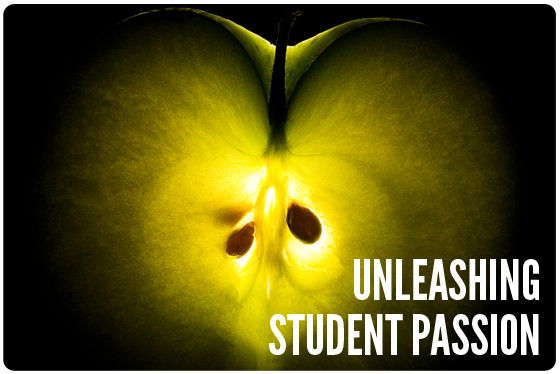My students need the kind of education that requires them to think critically, problem solve, and learn skills of collaboration, rather than memorize for an exam and forget everything the next day, or believe that there’s only one answer to a problem. In our 21st century world, any problem that is significant requires complex answers, none of them necessarily “right.”
Furthermore, the top 10 jobs in 2010 didn’t exist in 2004. How do we prepare our students for jobs that don’t exist now, that will use technology that hasn’t been invented, to solve problems we don’t even know are problems yet? By teaching them skills, not solely content.
Content is easy. Google it. We live in a world where content is ubiquitous. And in a wi-fi, 3G world, accessible almost anywhere. We need to teach our students skills to be able navigate and make sense of such a world.
-Shelley Wright, from The courage to change
Shelley is a teacher, an education blogger, a Voice from the Learning Revolution, and co-instructor of the Unleashing Student Passion eCourse. We’ve got a group of educators who are right in the midst of that course right now. They are deeply learning about shifting classroom practice toward more engaging approaches that bring out the passion within each learner. We’d like you to join us for the next section, which starts August 1st.
About Unleashing Student Passion
A passionate student is a learning student. As the world is becoming increasingly connected, the nature, use, ownership, and purpose of knowledge are changing in profound ways. Our goal as educators is to leverage these connections and changes as powerful means to improve teaching and learning in our schools.
Through the Unleashing Student Passion 5-week eCourse you will explore:
- The theoretical basis of passion/interest-based learning
- A practical how-to: Selecting topics, incorporating standards, integrating technology, finding experts, developing authentic assessment, and more
- The process: Making a timeline, constructing learning centers, recruiting and working with partners, connecting with experts, and building prototypes
- Case studies: thorough investigation of powerful examples of passion, problem or project-based learning and why they were effective
Are you the box?
Middle school students view inventive thinking as “smart,” “new,” “creative” and “out-of-the-box.” When asked what “out-of-the-box” means, students told one of our team members: “You are the box. This classroom is the box. This textbook is the box. A rubric is the box.”
Talk about changing your perspective. In this post, Chris Preston shares how they’re cultivating inventive thinking in the middle grades – through authentic tasks, connected learning, and collaborative learning. Learn more about their passion-based Action Research project.
In Unleashing Student Passion, you’ll learn how to engage students via passion, project, and problem-based learning. We’ll give you the why and the how on getting these techniques into your classroom. Don’t be the box. Join us on August 1.
Latest posts by Powerful Learning Practice (see all)
- Hurry, you do not want to miss out on this… - November 3, 2020
- Resist the Urge to Quit Prematurely - October 26, 2020
- Let’s Move Past Feeling Disconnected from Your Students. Words Matter - October 24, 2020



I second the opinion stating that the theoretical basis should be backed by experiments also; that gives like a complete package!